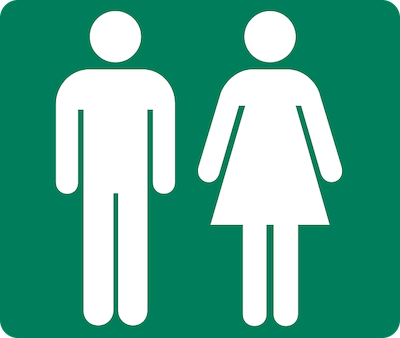Despite their evident success, many high-achieving women in academia say they often feel professionally inadequate, a well-known pattern called the imposter phenomenon. Yet research on this has typically centered on the individual, not the environment. A new study might help turn that trend on its head, spurring cultural changes in higher education.
A team of psychology researchers found that the more a discipline is perceived to demand raw talent or “brilliance” to excel, the more women and early-career academics feel like “imposters.” That relationship is even stronger among women of color, who continue to be underrepresented in higher education.

The study’s senior author, Dr. Andrei Cimpian, a professor in NYU’s Department of Psychology, found in his earlier research that men are more likely than women to be seen as “brilliant.” In another study he co-authored, Cimpian discovered that women and African Americans are underrepresented in careers where achievement is perceived to depend on high intellectual ability.
For this latest report, the research team surveyed nearly 5,000 academics, including tenure-track, tenured, and non-tenure-track faculty as well as postdoctoral fellows, medical residents and graduate students. Academics were from nine public and private U.S. universities representing more than 80 fields, from medicine to the humanities to the natural and social sciences.
Participants rated their level of experiences with imposter feelings, such as “Sometimes I’m afraid others will discover how much knowledge or ability I really lack.” They were also asked to rate their perception of brilliance in their field with statements like, “Personally, I think that being a top scholar of [my discipline] requires a special aptitude that just can’t be taught.”
Dr. Ashley Vaughn, an educational psychologist at Northern Kentucky University, also studies the imposter phenomenon and gender in higher education. She notes that these imposter feelings tend to connect to not-belonging feelings, which can negatively impact a person’s motivation in their career.
“If we don’t see ourselves reflected in certain positions, then we can say, ‘Well, clearly if I’m moving into one of these roles, I’ve somehow duped everyone because I’m not the type of person put in these positions,’” said Vaughn.
The new study also found no relationship for men between the perception of raw talent and imposter feelings. “So, it’s not that this kind of field culture is more threatening to women than men,” Muradoglu said. “It’s that this is not threatening to men, but it is to women.”
Muradoglu suggests cultural shifts in academia as a next step to be more inclusive. “If fields can modify what they are conveying about what they value, such as minimizing talk of brilliance or being gifted, then that change in the field’s narrative could be really helpful,” she said.
Vaughn agrees and offers another recommendation.
“Part of this imposter phenomenon is that we don’t know in higher education what’s really going on with other people,” said Vaughn. “We so often see everyone else’s successes, but we didn’t know that before that article came out, it was rejected six times. I think higher education also needs to be more honest about the good and the bad.”
Rebecca Kelliher can be reached at [email protected]















